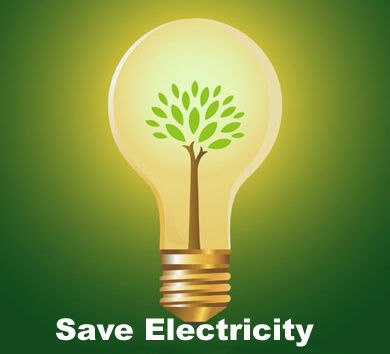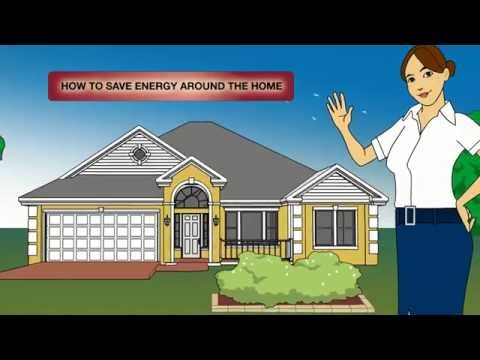Keepers at Home-Energy Conservation

What is Energy Conservation?
Energy conservation is the decision and practice of using less energy. Turning off the light when you leave the room, unplugging appliances when they're not in use and walking instead of driving are all examples of energy conservation. The two main reasons people conserve energy are to gain more control over their energy bill and reduce the demand on the earth’s natural resources.
Ways to conserve energy/electricity:-
- Take off unnecessary lights. Turn off lights whenever you leave a room and don't need them - even for a few minutes.
- Turn your refrigerator down. Refrigerators account for as much as 13.7% of the total household energy use. To increase energy savings, set your fridge to 37 degrees Fahrenheit and your freezer to 3 degrees Fahrenheit. Clean the intake grill every three months.
- Use energy-efficient light bulbs. Install energy-saving CFL or LED bulbs in your lighting fixtures to use 25-35 percent less energy, compared to regular incandescent bulbs.
- Purchase energy-efficient appliances. When purchasing an appliance, you should pay attention to two numbers: the initial purchase price and the annual operating cost. Although energy-efficient appliances might have higher upfront purchase prices, they usually save money on your monthly utility bill.When purchasing an energy-efficient appliance, look for the Energy Star label. Energy Star is a federal guarantee that the appliance will consume less energy than standard models. Importantly, energy savings differ based on the specific appliance. For example, Energy Star-certified clothes washers use approximately 20 percent less energy than standard models, whereas Energy Star refrigerators use 9 percent less energy.
- Unplug charging electronics like your smartphone once fully charged, they can still use electricity even at full charge. Don’t leave them plugged in overnight or use a smart power strip.
- Cook multiple dishes at the same time. Be strategic with your oven racks and put multiple dishes in at the same time. You’ll save energy—and time!
- Clean or replace air filters as recommended. The air conditioner and heater are the biggest energy users in most homes, and these appliances have to work even harder with dirty air filters. Write the date of installation on the filter to help you remember when it needs to be replaced.
- Do full loads. Make sure your dishwasher and washing machine are full before running them to get the most energy-saving use from each run cycle.
- Use smart power strips. Even when not in use, household electronics still draw power from outlets. This phenomenon is called “phantom load”. Energy-saving smart power strips, which shut down appliances that have gone into standby mode, help you cut down on phantom-load costs, potentially resulting in money and energy savings.
- Air-dry dishes and clothes. Instead of using your dishwasher’s drying feature, consider letting the dishes air-dry. Do not pre-wash dishes - scrape and rinse. And instead of using the dryer on a nice day, hang your clothes outside to dry.
- Bake with glass or ceramic pans. You can set the oven’s temperature 25 degrees lower than indicated in the recipe when you do this.
- Cook using the right-sized burner. Conserve energy by using your stove’s small burners for small pots and large burners for large pots.
- Cut down on air leaks in your home. You’re paying for warm air in the winter and cool air in the summer — don’t let that money escape! Check your windows and doors for cracks and gaps, and seal them up with new weather stripping or caulk.
- Reduce your water heating expenses. Water heating significantly contributes to your total energy usage. Other than purchasing an energy-efficient water heater, there are three ways to reduce your water heating expenses: use less hot water, turn down the thermostat on your water heater, or insulate your water heater with the first six feet of hot and cold water pipes.
- Insulate your home. Insulation plays a crucial role in lowering your utility bills by retaining heat during the winter and keeping heat out of your home during the summer. The level of insulation you should install depends on the area of your house. Your attic, walls, floors, basement, and crawlspace are the five main areas where you should consider adding insulation. Consider receiving an energy audit to help you determine if you need to add insulation.
- Use natural light. Using light from the sun is an intuitive way to reduce energy consumption. Open blinds or shades to brighten a room. Decorate your home with lighter colors that reflect light.
- Energy efficient products for your home. There are many different products you can purchase to improve your home’s energy efficiency and reduce your overall energy consumption. Below are some examples of ways you can leverage renewable energy sources and reduce your dependence on fossil fuels:
- Solar panels
- Solar panels can help you use available energy from the sun to power your home, so you can harness that energy to power your home.
- Solar batteries
- You can install solar batteries when you install solar panels, allowing you to store the extra solar energy your panels generate when the sun goes down as well as other benefits like increased energy savings.
- Solar panels
See link below to access Trinidad and Tobago's Energy Calculator to view your electricity bill
https://www.ric.org.tt/calculator/
You can find videos on how to conserve energy below:-
Comments





